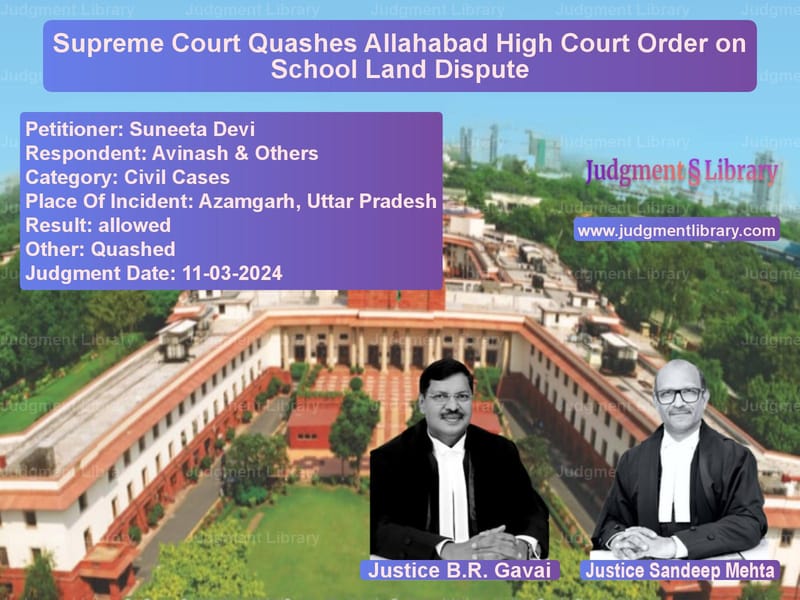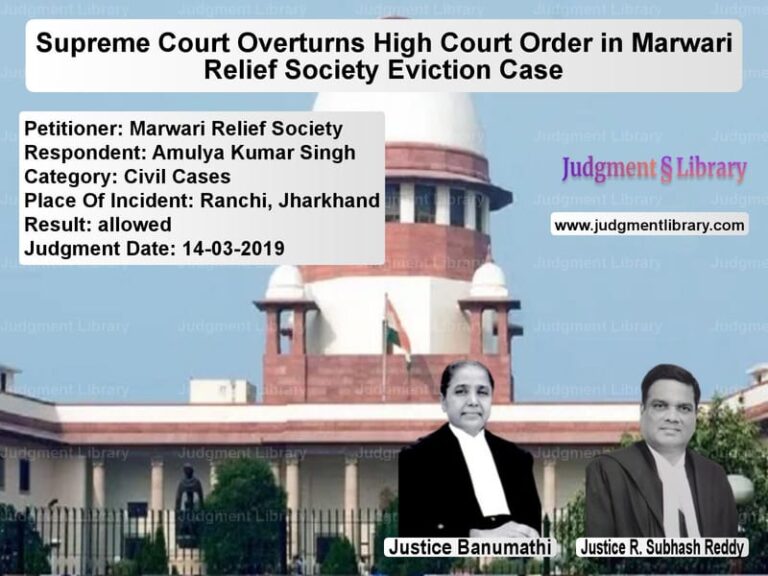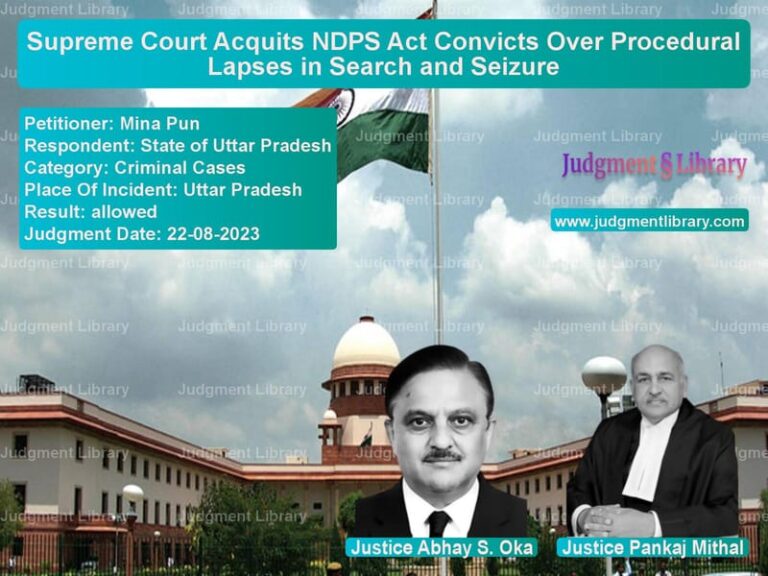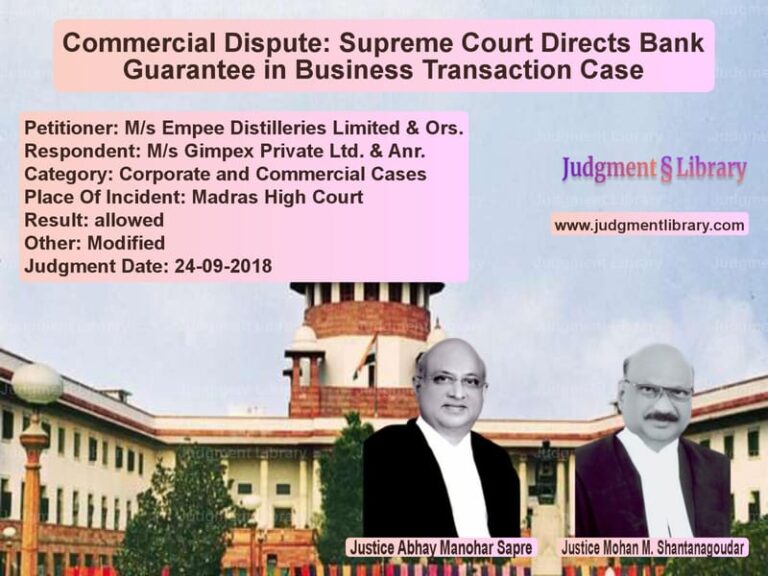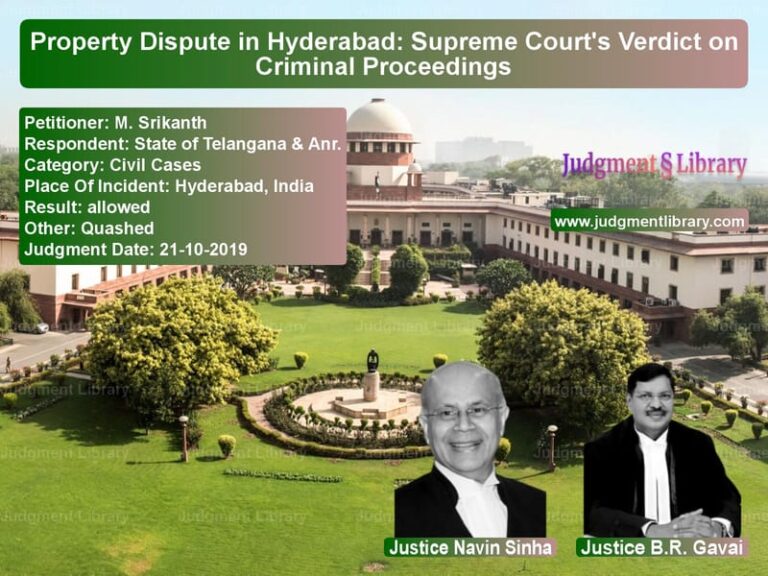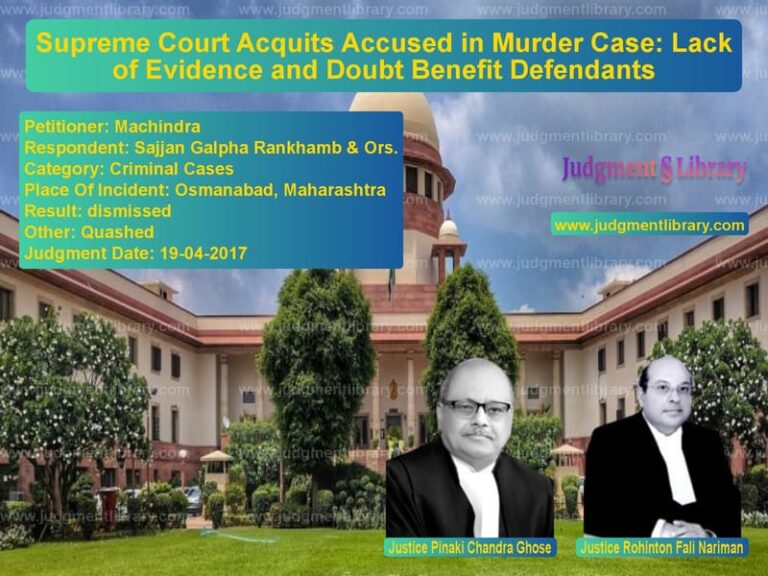Supreme Court Quashes Allahabad High Court Order on School Land Dispute
The Supreme Court of India recently quashed an order by the Allahabad High Court, which had canceled a land allocation for constructing a new primary school in Azamgarh. The case, Suneeta Devi vs. Avinash & Others, dealt with a dispute over the relocation of a government school due to highway expansion. The Supreme Court ruled that the High Court’s decision was arbitrary, lacked due process, and violated principles of natural justice.
Background of the Case
The dispute arose when a primary school in Mai Kharagpur, Lalganj, Azamgarh had to be demolished due to the construction of a National Highway by the National Highways Authority of India (NHAI). The villagers requested the authorities to relocate and reconstruct the school in the village.
In response, the Land Management Committee identified and allocated Plot No. 821M for the new school and sought approval from the state government. The proposal was approved by the Sub-Divisional Officer (SDO), Lalganj on September 17, 2018, and the NHAI began construction.
Legal Challenges to the Land Allocation
1. First Writ Petition: Public Interest Litigation (PIL)
- Respondents Avinash and Ram Jee challenged the land allocation through a PIL in the Allahabad High Court (PIL No. 4648 of 2018).
- The Division Bench dismissed the PIL on October 27, 2018, stating that the objections were an attempt to interfere with public work and that no public interest was involved.
2. Second Writ Petition: Civil Suit
- The respondents then filed Writ-C No. 10806 of 2019, challenging the allocation and seeking an injunction against the school’s construction.
- The High Court dismissed this petition on April 18, 2019, ruling that land disputes should be resolved through a civil suit rather than a writ petition.
3. Third Writ Petition: Concealment of Prior Litigation
- Despite the previous dismissals, the respondents filed another petition (Writ-C No. 15225 of 2019), this time claiming that the school land was illegally taken.
- They falsely declared that this was the first petition of its kind, concealing the earlier rejected petitions.
- The Allahabad High Court allowed the petition on July 3, 2019, ruling that the land allocation was illegal and quashing the SDO’s approval.
Supreme Court Appeal
Suneeta Devi, representing the villagers and the school, appealed against the High Court’s ruling, arguing that:
- The High Court had acted in hot haste by deciding the case without issuing notices to all parties.
- The ruling was based on false claims by the respondents, who hid the fact that similar petitions had already been dismissed.
- The new school was already constructed and operational, making the High Court’s order unjust and disruptive.
Supreme Court’s Key Observations
1. Concealment of Previous Writ Petitions
The Court criticized the respondents for misleading the High Court by hiding their earlier failed attempts to block the school’s construction.
“The original writ petitioners (respondents) concealed material facts and misled the court, making false declarations that no previous writ petition had been filed.”
2. Violation of Natural Justice
The Supreme Court held that the High Court acted without hearing all stakeholders, violating principles of natural justice.
“The manner in which the proceedings were undertaken indicates that the High Court was keen on not allowing the respondents therein to be heard.”
3. Arbitrary and Unjust Ruling
The Supreme Court found that the High Court’s order was issued without proper examination of facts and lacked fairness.
“The order suffers from patent illegality, perversity, and violation of due process.”
4. Urging Courts to Exercise Caution
The Court emphasized the need for judicial caution when dealing with public projects, especially when attempts are made to disrupt essential infrastructure.
“Public works, such as school construction, should not be stalled due to private interests masquerading as public concern.”
Final Verdict
The Supreme Court quashed the Allahabad High Court’s order and restored the land allocation for the school. It also ruled that the school, which was already operational, should continue without interruption.
Conclusion
The ruling highlights key judicial principles:
- Honesty in litigation: Petitioners must disclose all previous legal attempts on the same issue.
- Due process: Courts must ensure all parties are heard before passing orders.
- Public interest vs. private interest: Public projects should not be hindered by frivolous legal challenges.
The Supreme Court’s intervention prevented a miscarriage of justice and ensured that a much-needed school could continue serving the local community.
Petitioner Name: Suneeta Devi.Respondent Name: Avinash & Others.Judgment By: Justice B.R. Gavai, Justice Sandeep Mehta.Place Of Incident: Azamgarh, Uttar Pradesh.Judgment Date: 11-03-2024.
Don’t miss out on the full details! Download the complete judgment in PDF format below and gain valuable insights instantly!
Download Judgment: suneeta-devi-vs-avinash-&-others-supreme-court-of-india-judgment-dated-11-03-2024.pdf
Directly Download Judgment: Directly download this Judgment
See all petitions in Property Disputes
See all petitions in Education Related Cases
See all petitions in Judgment by B R Gavai
See all petitions in Judgment by Sandeep Mehta
See all petitions in allowed
See all petitions in Quashed
See all petitions in supreme court of India judgments March 2024
See all petitions in 2024 judgments
See all posts in Civil Cases Category
See all allowed petitions in Civil Cases Category
See all Dismissed petitions in Civil Cases Category
See all partially allowed petitions in Civil Cases Category

